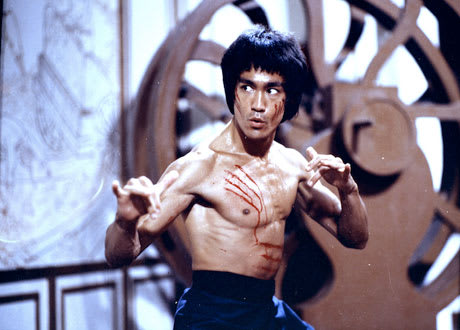Elvis, Marilyn, Ali, Bruce Lee ― these are pop culture icons, and the film industry venerates them by regularly pumping out their biographies for each new generation. That's a good thing when the bio is done right, but exploitive when done wrong. However, I'm glad to say that I Am Bruce Lee does mostly right.
This new Canadian doc tells the Bruce Lee story to a new audience using slick editing, contemporary music and crediting Lee as the father (arguably) of MMA (mixed martial arts). All this gloss would be shallow if director Pete McCormack (of the Oscar-nominated Facing Ali) hadn't secured key interviews with Lee's widow, Linda Lee Cadwell, and daughter Shannon (who serves as executive producer), martial arts experts, UFC fighters and even actor/boxer Mickey Rourke.
McCormack also uncovers little-known information, such as Lee's German ancestry (on his mother's side) and his 1957 Hong Kong cha-cha championship, which he directly links to Lee's furious footwork as a martial artist. Lee speaks for himself largely through a superb interview with late Canadian writer Pierre Berton.
By now the legend is famous: Hong Kong child star Bruce Lee moves to the States, where he teaches secret Chinese kung-fu to white folks, develops a cult following in the role of Kato in the mid-'60 TV series The Green Hornet, can't land a role in racist Hollywood so he returns to Hong Kong to make Fists of Fury, Way of the Dragon and a movie career. Tragically, his life was snuffed out before the world premiere of his seminal martial arts film, Enter The Dragon.
The film not only chronicles Lee's life, but explores his influence as film's top martial artist and Asian male sex symbol. At times, the film drowns Lee in praise (okay, okay we get it: he's the greatest of all time), but does prove Lee's universal appeal to all races. Declares one British admirer, "When I watch Bruce Lee, I am Bruce Lee."
(D&E Entertainment)This new Canadian doc tells the Bruce Lee story to a new audience using slick editing, contemporary music and crediting Lee as the father (arguably) of MMA (mixed martial arts). All this gloss would be shallow if director Pete McCormack (of the Oscar-nominated Facing Ali) hadn't secured key interviews with Lee's widow, Linda Lee Cadwell, and daughter Shannon (who serves as executive producer), martial arts experts, UFC fighters and even actor/boxer Mickey Rourke.
McCormack also uncovers little-known information, such as Lee's German ancestry (on his mother's side) and his 1957 Hong Kong cha-cha championship, which he directly links to Lee's furious footwork as a martial artist. Lee speaks for himself largely through a superb interview with late Canadian writer Pierre Berton.
By now the legend is famous: Hong Kong child star Bruce Lee moves to the States, where he teaches secret Chinese kung-fu to white folks, develops a cult following in the role of Kato in the mid-'60 TV series The Green Hornet, can't land a role in racist Hollywood so he returns to Hong Kong to make Fists of Fury, Way of the Dragon and a movie career. Tragically, his life was snuffed out before the world premiere of his seminal martial arts film, Enter The Dragon.
The film not only chronicles Lee's life, but explores his influence as film's top martial artist and Asian male sex symbol. At times, the film drowns Lee in praise (okay, okay we get it: he's the greatest of all time), but does prove Lee's universal appeal to all races. Declares one British admirer, "When I watch Bruce Lee, I am Bruce Lee."
